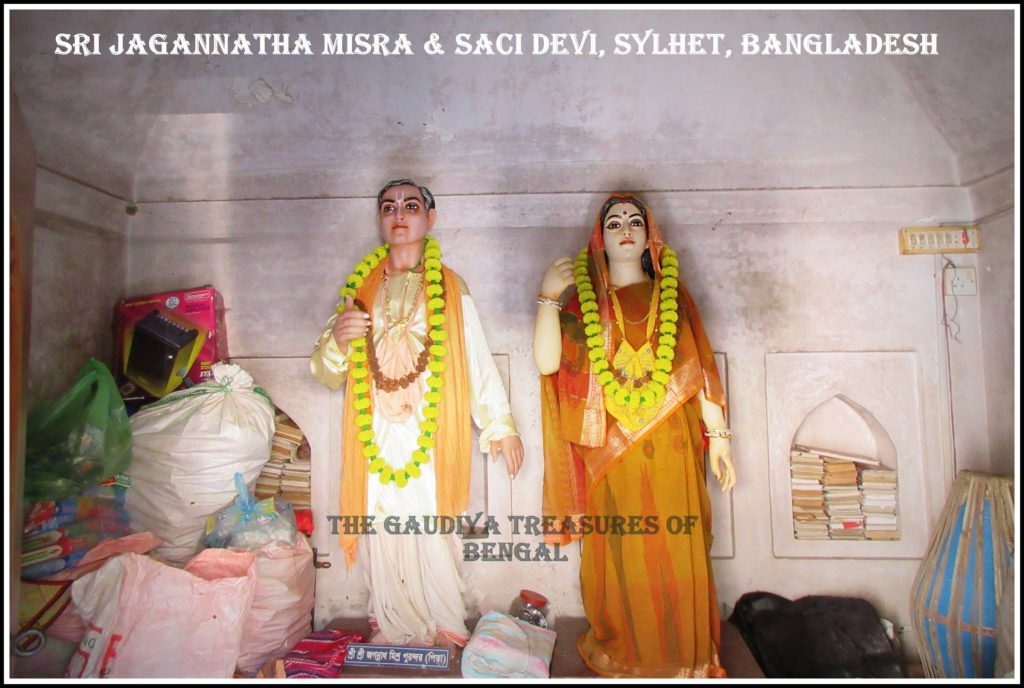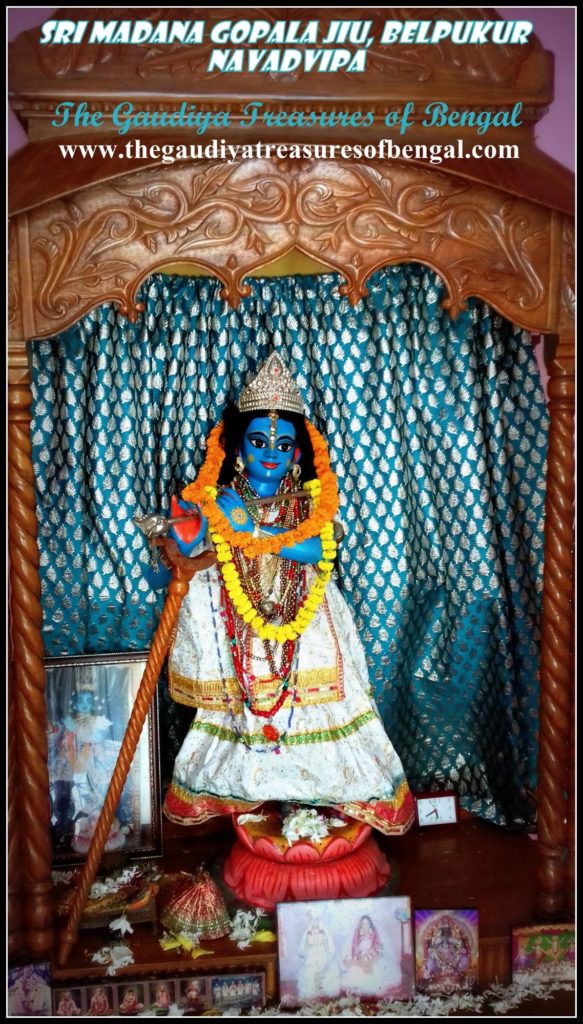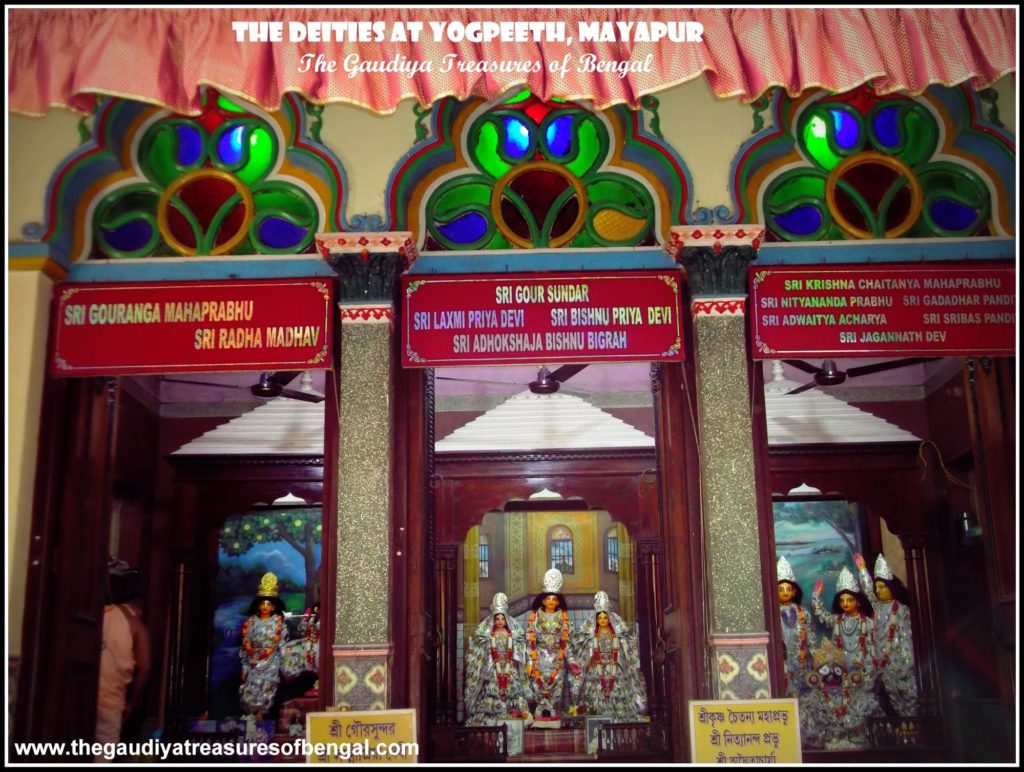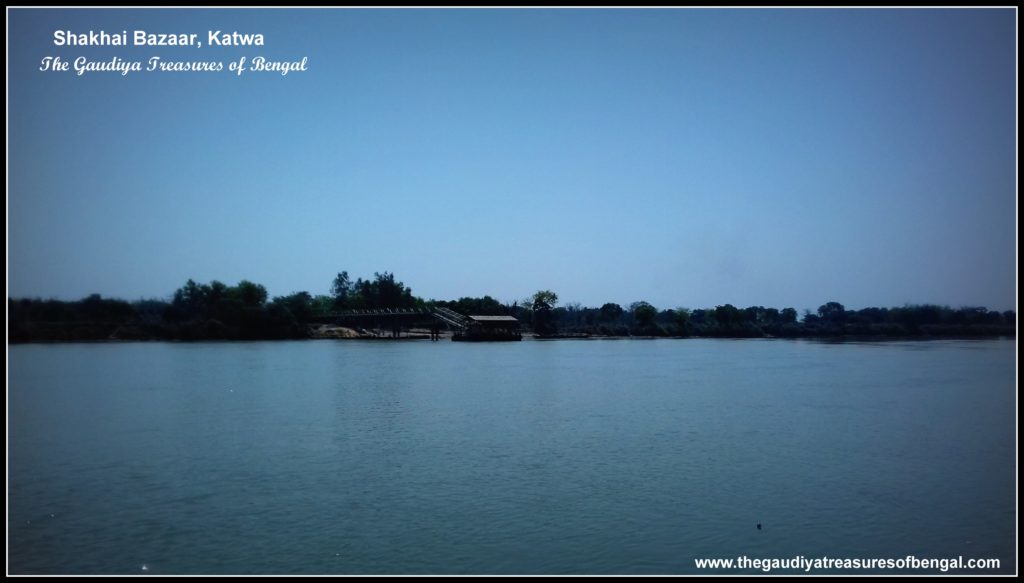
The pastime of Sri Jagannatha Misra’s disappearance is very painful for the Gaudiya Vaishnavas. Though both the appearance and the disappearance of a Vaishnava is considered to be auspicious, yet the apparent misery of our beloved Gauranga and Mother Saci are very difficult to overlook. It is exactly for this reason that not much is written about it in Sri Chaitanya Bhagavata, where Sri Vrindavana das Thakura mentions –
Dukha bada – e shakala vistara karite
Dukkha haya – ataeb kahiluun sankhepe
(Chaitanya Bhagavata , Adi, 8.112)
–
It is very painful for me to describe all of this in detail. It hurts a lot and hence I am describing it in brief.
However, we find quite a bit of this pastime described by Locana das Thakura in Sri Chaitanya Mangala. One day Sri Jagannatha Misra, after returning from his Gurudeva’s ashrama where he occupied himself with studying various Vedic scriptures, felt unwell. By the will of providence, He became afflicted with acute fever. This made Saci devi very anxious. Seeing His mother fearing for the worst and crying piteously, Sri Chaitanya tried to pacify Saci Mata with philosophical insights. He explained that everyone must meet with destruction one day – be it the Brahma, Rudra (Shiva), the vast ocean, mountains, or even the Himalayas. Demigods like Indra, Varun, or Agni will also meet with death in due course of time. “So why do you fear death?”He asked. “Gather all your friends and chant the holy name of Krishna. At the critical time of death, one’s friends must remind him of Lord Krishna, the crown jewel of the Yadu dynasty”.

Hearing the ill-fated news, all the friends and relatives rushed to Yogapitha (Jagannatha Misra’s residence) and surrounded Jagannatha. Sensing his imminent death, senior friends and relatives, started discussing amongst themselves. Lord Viswambhara exclaimed, “O Mother! Why do you delay? Please engage the relatives”. Saying this Viswambhara, Saci Mata, friends and relatives, carried Jagannatha Misra to the bank of the Ganges. Clutching onto His father’s feet, Viswambhara wept uncontrollably and spoke with a voice choked with emotions. He spoke as follows :
Amare eriya baap kotha jaho tumi
Baap bali ara daak na diba ami
Aji haite sunya haila e ghar amara
Ar na dekhiba baap charana tomara
Aji dash-dik sunya andhiyar ghore
Na parabe yatana kari dhari nija kare
(Chaitanya Mangala, Adi, 3.670-672)
–
Where do you go dear father, ignoring Me like this? I will never be able to call out ‘father’ anymore. From today darkness has descended and my house has become empty. You will no longer hold my hand with your fingers with such care and teach me.
Hearing Viswambhara’s heartfelt words, Jagannatha Misra tried to answer but he could not.In a feeble choked voice, he replied, “Hear me O Viswambhara! Let me reveal my heart to You. I leave you at the shelter of Raghunatha’s (family deity) lotus feet”. Saying this he absorbed himself meditating upon Lord Hari. All the brahmanas then bathed Jagannatha Misra in Ganges water and decorated his neck with Tulasi leaves. The place burst into a loud sankirtana. Friends and relatives engaged themselves in chanting the holy name and glories of Lord Hari. Just at that time, Sri Jagannatha Misra, the best of the brahmanas, left his mortal body and ascended the celestial chariot for Vaikuntha.

Vaikuntha chalila Dvija ratha arohane
Dharani biday dei Saci-ra krandane
Patira charana dhari kande lotaiya
Mo jaun amare laha samhati kariya
(Chaitanya Mangala, Adi, 3.679-680)
–
Jagannatha Misra ascended the celestial chariot for Vaikuntha. He left this world amidst the deafening cries of Saci devi.
Holding onto the feet of her husband, she rolled upon the ground and cried piteously. ‘I want to go, please take me with you’, she lamented.
Saci Devi expressed,” I have served you faithfully for so many years. Now you are going to Vaikuntha abandoning me over here. I have served you in your eating and sleeping. Suddenly all ten directions have turned dark for me. I have now become shelterless with your little son. Where will Nimai stay and to whom will He look for guidance? A son like Nimai is so rare and precious in the world. Disregarding everything, you are now leaving us”.
Mayera kandana dekhi bapera marana
Kandoye Sacira suta jharaye nayana
Gajamati haar yena ganthila sutaya
Nayane goloye jol vishal hiyaya
Bhaktajana bondhujana hahakara kare
Prabhura kandanaya kande sakala samsare
Shanta karaila sabe madhura vachane
Sristi noshto haya prabhu tomara krandane
(Chaitanya Mangala, Adi,3.685-688)
–
Seeing that His father had passed away and witnessing His mother cry, the son of mother Saci (Nimai) cried profusely. The drops of tears slumping from His eyes onto His chest resembled precious pearls.
The crying of the Lord induced the devotees and friends to mourn in sorrow. They tried to console the Lord with sweet pacifying words. They exclaimed that the entire creation would suffer due to the Lord’s crying.
The ladies pacified Saci devi and asked her to focus on Viswambhara. This would enable her to get over her grief, they suggested. Lord Viswambhara restrained His emotions and acted calmly to conclude the last rites of His father. He worshipped the brahmanas and gave them gifts in charity. Along with His family members, Nimai executed all the prescribed Vedic rituals. Locana das Thakura concludes this chapter emphasizing and making the following prediction –
Jagannatha Vaikuntha-gamana ei katha
Apane se Dvijattama Viswambhara pita
Sraddhabanta yana yadi ei katha shune
Vaikunha chaloye sei Gangaya maranei
(Chaitanya Mangala, Adi, 3.694-695)
–
Jagannatha Misra, the father of Lord Viswambhara, was the best of the brahmanas. One who faithfully and devotedly hears this pastime of Jagannatha Misra’s disappearance and subsequent departure to Vaikuntha, also attains the same exalted destination of Vaikuntha, if he dies on the bank of the Ganges.
